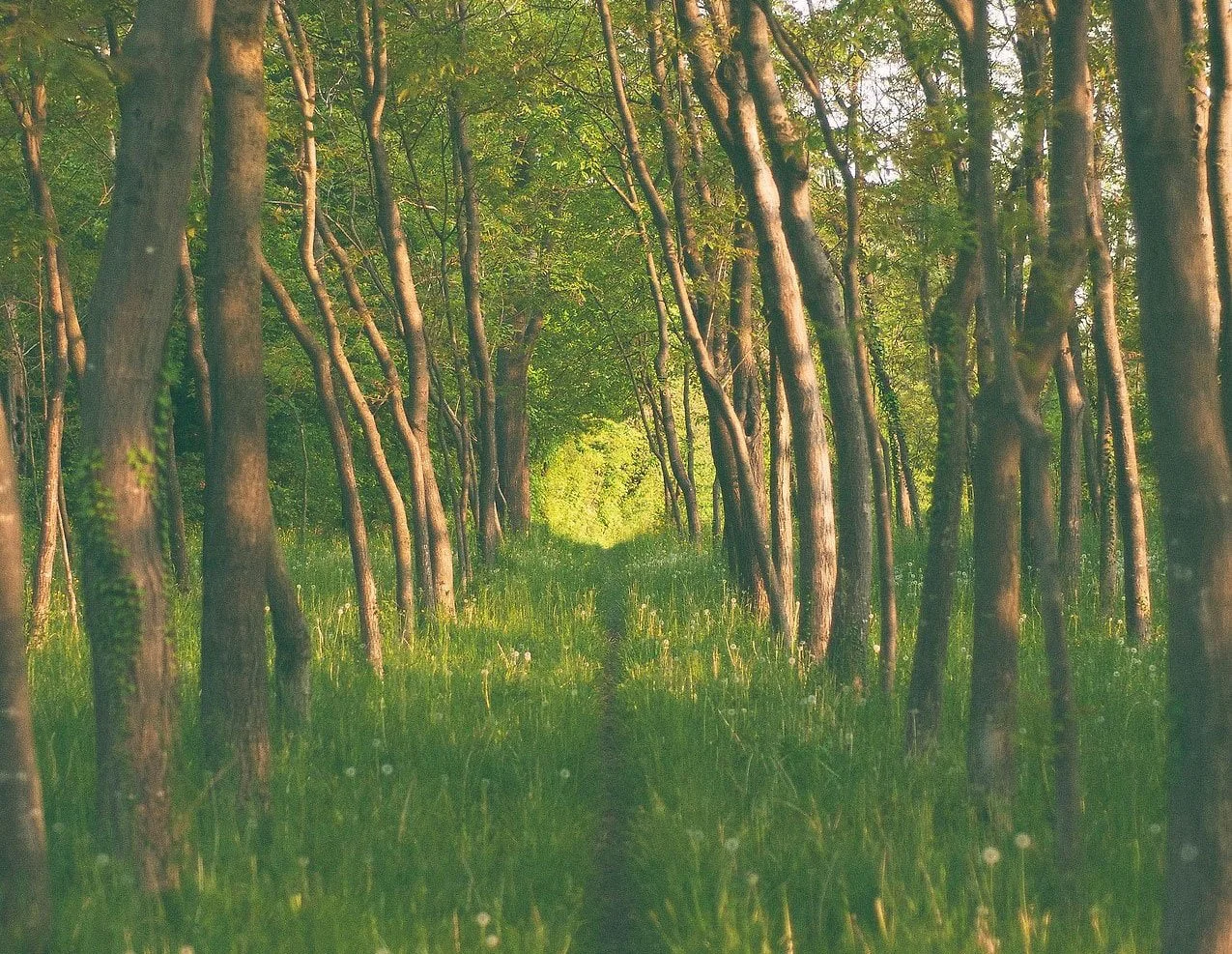Articulating both the harsh realities of modern day division and the simultaneous reality of our connection to each other and to the earth, Báyò and john examine what it means to be “other” and to invite in the “monstrous” and the “strange.”
Read MoreTyson calls us to unbrand our minds and deeply interrogate where we are sourcing our thoughts from, the ramifications of becoming a trauma-obsessed society, and how to identify environments for emergence.
Read MoreAyana and Morgan dive into the need for repair, healing, and acknowledgement as we face the historical roots of modern inequity. This heartfelt and expansive conversation calls for us to unlearn the ways racial capitalism has taught us wealth should be passed down.
Read MoreGabes lucidly describes the ways our individual health and well-being is dependent upon our connections and the structures of the societies in which we reside, bringing us into conversation about interdependence and the abundance that our communities can foster when we move beyond a scarcity mindset based in individualism and profit.
Read MoreMalcolm offers well-rooted thought touching on the history of Stanford University, the internet, Palo Alto’s military connections, and reveals the values of understanding our material realities and the structures that support society as it stands.
Read MoreSamuel Bautista Lazo brings listeners into an insightful conversation on the value of craftwork that connects us to the past and plants seeds for the future emphasizing the radical act of creating connection and meaning with the objects we need to sustain life.
Read MoreJosué invites us to challenge extractive and colonial lenses by embracing the overwhelming force of the creative urge. How might we break apart from the constant pressure of social media to envision the new modes of creation and creativity that these stories need in order to be told?
Read MoreTricia Hersey joins Ayana to unwind the complicated ties of exhaustion and exploitation. Tricia’s words serve as incantations against the brainwashing of grind culture as she and Ayana investigate the systems that benefit from keeping us stagnant.
Read MorePart two of the conversation between brontë and Tiffany spans further inquiry into shoals, the physical desire to belong to Earth, agency, eros, spiritual correction, the pleasure and potential of failure, and that which cannot be translated, but instead has to be experienced or co-witnessed to be understood.
Read Morebrontë and Tiffany explore sacred laughter, Black and Indigenous feminism, sexuality, liberation, ceremony, and protocol. This simultaneously intimate and expansive dialogue allows us to rethink the stories and structures we’ve been told regarding Black and Indigenous relations.
Read MoreSpeaking to the ways that carrying the trauma of caste manifests within the body, Thenmozhi emphasizes the importance of slowing down to process the grief and pain caused by mindless oppression. She offers important context to the conversation about caste, emphasizing the ways caste discrimination manifests within global schemes of technology and power distribution.
Read MoreVandana and Ayana piece apart the threads of our global culture that lead to exploitation and extraction - focusing on the policies of division and distraction that keep us from each other. The divisions that world-leaders focus so much time on are created in order to dominate and exploit the nature on which the earthly community depends.
Yoalli brings us to the Chacahua-Pastoría Lagoons in Oaxaca, Mexico, to investigate deep connections with land, ongoing colonial violence, and the grief that comes alongside loving a place; a heartening conversation about the importance of ecological grief, rage, and sadness.
Read MoreAntonia dives into the tension that exists in living in and caring for lands that have been violently colonized, calling listeners to understand plants both in the ways that colonization has affected their legacies, and within anti-colonial structures that suggest there are other ways to engage with the plants around us.
Read MoreBrett shares how mass-incarceration and climate change are not crises of the individual, but of our culture. The abolitionist imagination may be the key to a collective future– as Brett reminds listeners that one can be both practical and utopian.
Read MoreBayo Akomolafe guides listeners on a journey to lose oneself and leave behind the ties that bind us to world views that do not serve humanity’s wholeness. Bayo challenges us to lean into the “political un-project” that is fugitivity, blurring societally-imposed binaries, in order to better understand the human territory and to make more-than-human sanctuary through post activism.
Read MoreDr. Carroll pushes back against dominant settler histories about Cherokee migrations and relations to homeland and provides insight into what audience members ought to glean from Indigenous philosophies imparting practices of deep reciprocity, responsibility, and relationship to the land and each other.
Read MoreDr. Osorio guides us into a fuller understanding of aloha by returning the commodified phrase to the more extensive understanding of aloha ‘āina, wherein the possibilities for other worlds are not only born but remembered and recalled from the long history of sovereign Hawai’i and traditional Hawaiian teachings and lifeways.
Read MoreCovering the neuroscience of trauma, the habit of racism, and various typologies of systemic trauma, Dr. Ward provides insight into how we might consciously choose to activate our neuroplasticity toward justice rather than collectively rewarding our neuroplasticity for violence and oppression.
Read MoreWe discuss Kyle’s body of work on dystopia and fantasy in climate justice, the reproduction of settler structures, Indigenous science, vulnerability discourses, and “decolonizing allyship.” Kyle concludes with the ever present reminder that our work must be rooted in consent, reciprocity, and trust.
Read More

![TYSON YUNKAPORTA on Unbranding Our Mind [ENCORE] /328](https://images.squarespace-cdn.com/content/v1/5403e5dbe4b04db10d1d362b/1679438620815-FQQCOGTM00WXBA9K5R4W/Tyson-Yunkaporta_For-The-WIld-Podcast_Episode1x1.jpg)






![TIFFANY LETHABO KING on The Black Shoals [with brontë velez], Part Two /316](https://images.squarespace-cdn.com/content/v1/5403e5dbe4b04db10d1d362b/1670886696027-B18TPEPB1F02GVOCNCRM/Tiffany-Lethabo-King_For-The-Wild_Episode2.jpg)
![TIFFANY LETHABO KING on The Black Shoals [with brontë velez], Part One /315](https://images.squarespace-cdn.com/content/v1/5403e5dbe4b04db10d1d362b/1670276370810-8C4398YL28P1N7EDZ8OG/Tiffany-Lethabo-King_For-The-Wild_Episode1.jpg)









![KYLE WHYTE on the Colonial Genesis of Climate Change [ENCORE] /295](https://images.squarespace-cdn.com/content/v1/5403e5dbe4b04db10d1d362b/1578942140884-JHGF2QH6QLC8U6SWI4GB/154_KyleWhyte_ForTheWildPodcast_Image.jpg)